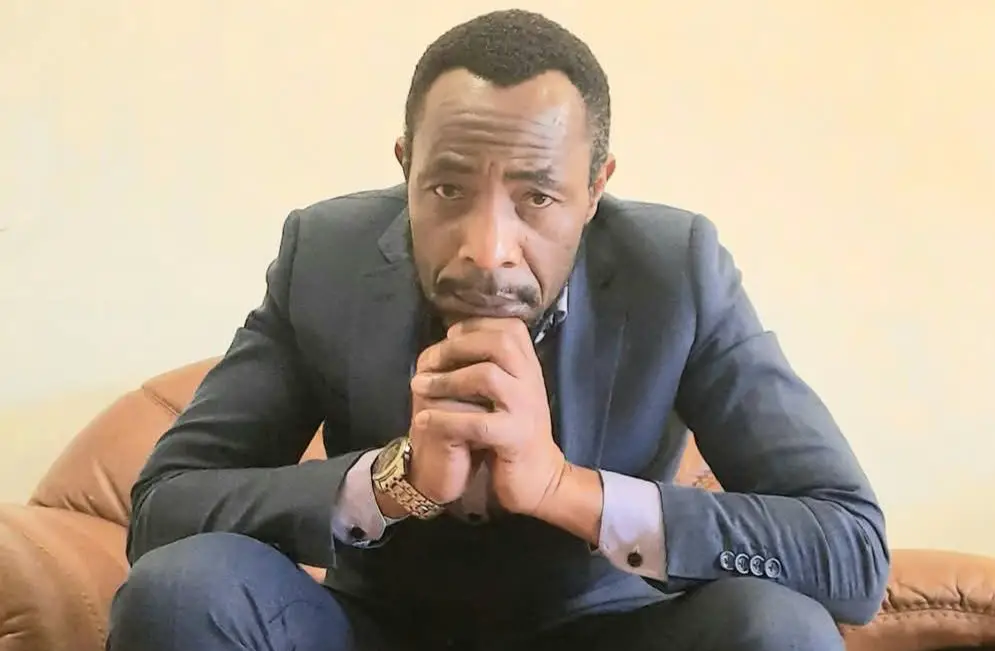Copyright nehandaradio

I have great respect for Tawanda Nyambirai. I have known him since our days as classmates back in 1987. He has a brilliant mind, a gracious personality, a fine character — and above all, he is a man of faith and integrity. I am not a lawyer like him, but I did study the same constitutional law units at the University of Zimbabwe, under the same lecturer — Professor Greg Linington — though at different times. From that borrowed enlightenment, I wish to humbly differ with my learned brother on three fundamental grounds. 1. The Spirit of the Law Law does not exist in sterile textual isolation. The spirit of the Constitution is as vital as its letter. Section 95 of the Constitution, as framed, was never designed to provide a blank cheque to Parliament or the Executive to redefine presidential term duration at whim. The drafters were clear in intent — that the President’s democratic legitimacy must be renewed after five years through an election. Any attempt by a sitting President or an incumbent Parliament to extend that duration — especially one from which the same incumbents directly benefit — would be malicious, frivolous, and an affront to the very spirit of constitutionalism. It is, to put it mildly, mischief disguised as reform. The law may be susceptible to clever reading, but the Constitution is not a playground for convenience or expedience. It is a covenant between the governors and the governed — not a toolkit for political survival. 2. The Doctrine of Legitimate Expectation The people of Zimbabwe have a legitimate expectation, enshrined both in precedent and in principle, that they will go to the polls in 2028 to choose their next leader. This expectation is not speculative — it is grounded in law and affirmed by the Supreme Court in Mawarire v State (2013), where the Court held that citizens had a legitimate expectation to vote for new leaders after the expiry of a constitutional term. That doctrine stands today as a guardrail against the political manipulation of electoral timelines. Any unilateral alteration of the presidential term, even under the guise of “clarifying” Section 95, would extinguish this legitimate expectation — an act that would undoubtedly invite judicial scrutiny. Indeed, I am aware that legal activists and constitutional scholars are already preparing paperwork for a possible court challenge, premised on this very principle. And rightly so. Constitutional order must never be left to the mercy of political goodwill. 3. The Question of Precedent We have been here before. The Mawarire case was not born of legislative action but of civic vigilance in the face of political ambiguity. It was a citizen’s insistence that the Constitution be respected. The same spirit should prevail now. The Court then did not wait for Parliament to amend the law — it acted to defend constitutional integrity. Likewise, the judiciary today retains both the moral and legal authority to intervene should there be an attempt to alter or defer the constitutional election calendar through backdoor reinterpretation. My brother Tawanda argues that Section 95 could be read to allow Parliament to “insert” a longer presidential term without contravening Section 328(7). I respectfully disagree. Such an “insertion” would not be a benign clarification — it would be a substantive amendment in all but name, and thus constitutionally impermissible without a referendum. The Constitution is not a jigsaw puzzle to be reassembled for political comfort. It is a living charter of restraint — a reminder that power must always submit to principle. As citizens, we owe it to ourselves, and to posterity, to defend not just the letter of our Constitution, but its spirit. For in the end, constitutional mischief — however cleverly dressed — remains mischief still. Below is the article that Reason Wafawarova was responding to…. “NO NEED FOR REFERENDUM TO EXTEND PRESIDENT’S TERM TO SEVEN YEARS” By Tawanda Nyambirai Sections 91, 95, and 328 of the Zimbabwe Constitution do not require a referendum to introduce a 7 year Presidential term and do not prohibit a sitting President from benefiting from the 7 year term!!! Law is still my passion. But I have not practiced it in a long time. So, rather than make submissions on the whole Constitution, I will limit my submissions to Sections 91, 95 and 328. Much has been written about Section 91. It deals with the number of terms and not the duration of a single term. My concern is the duration of a single term. Therefore I will not say more about Section 91. Section 95 appears to acknowledge that there is or could be another provision elsewhere that sets out Presidential terms. The 5 year term limit seems to only apply in the absence of another provision to the contrary elsewhere in the Constitution. It (Section 95) says in subsection 2: “2) The term of office of the President or a Vice‑President extends until— (a) he or she resigns or is removed from office; or (b) following an election, he or she is declared to be re‑elected or a new President is declared to be elected; And, except as otherwise provided in this Constitution, their terms of office are five years and coterminous with the life of Parliament.” If this is correct, there is nothing to stop Zanu PF through Parliament, and without referendum, from introducing a new constitutional provision providing for Presidential term limits other than the 5 year Limit. Put differently, there is nothing to stop Parliament, with the necessary majority, from introducing a clause that says, “A Presidential term shall be 7, 8, or 10 years”. Such a provision would not amend Section 95 (assuming it is the only section that provides for a Presidential term limit of 5 years). Such an insertion would apply to the sitting President without falling foul of Section 328(7) because the insertion will not be “an amendment to a term limit provision “. It will simply be an insertion to fill a gape or lacuna in the constitution. It appears the drafters of the constitution did not themselves know the duration of the term of office they wanted. If they wanted a five year term, it must have been very easy to just say that, “The duration of a Presidential term shall be 5 years”rather than frame Section 95 the way they did. I am not advocating for an amendment of the constitution. I am merely pointing out that there appears to be nothing stopping Zanu PF through Parliament from inserting a 7 year Presidential term provision in the Constitution without amending or contradicting section 95, and that there is nothing to Stop President Mnangagwa from benefiting from such an insertion.



